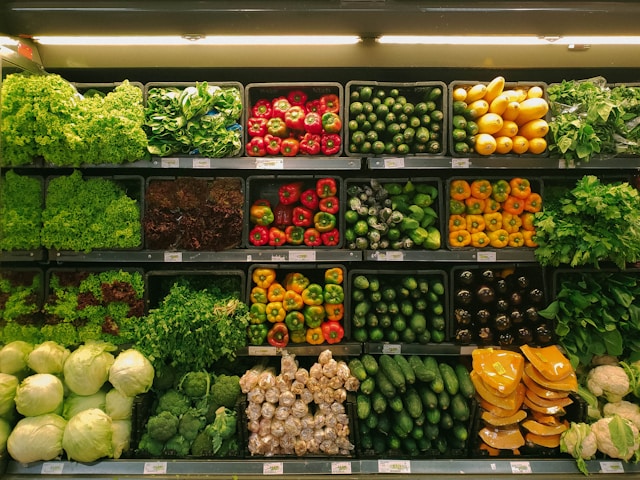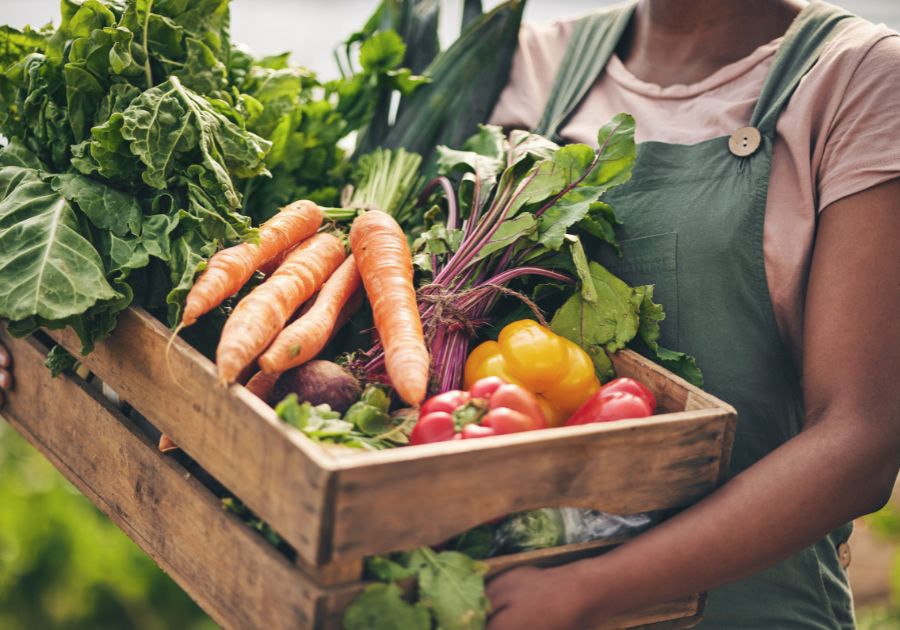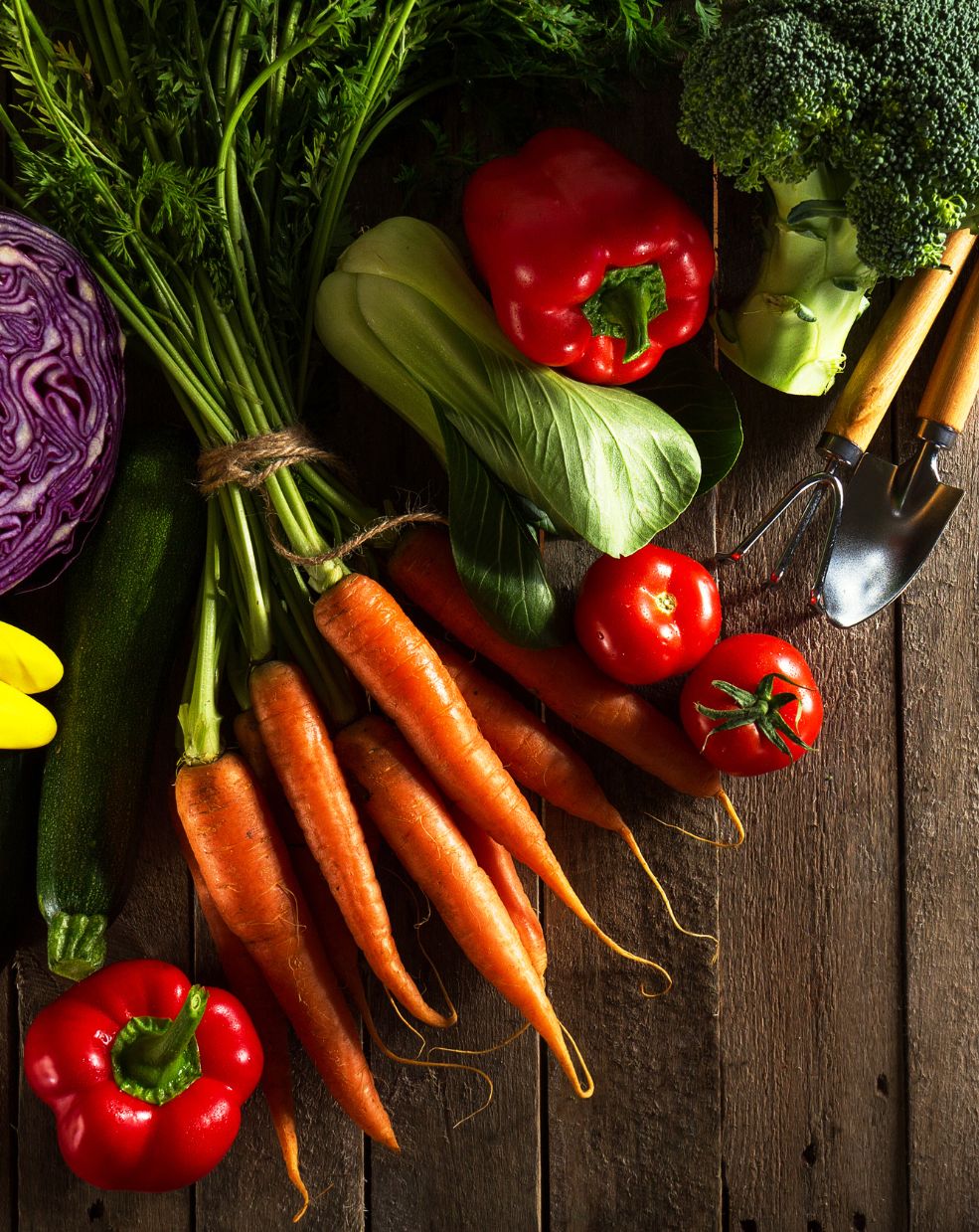Making informed food choices is crucial for promoting both personal health and environmental sustainability. When we consider where our food comes from and how it’s produced, we empower ourselves to make decisions that benefit not only our own well-being but also our environment.
From Farm to Table: Understanding the Journey of Your Food
Understanding the journey of your food, from farm to table and making informed food choices, while embracing sustainability, is multifaceted and intertwines personal health and environmental stewardship. Each step in this journey involves making informed food choices that prioritize both individual well-being and the planet’s vitality.
Sustainability involves practices that uphold the ecological balance of our planet, ensuring the longevity of natural resources while promoting human health. From the selection of seeds to the harvesting of crops, every decision made by farmers contributes to the sustainability of our food system.
Informed food Choices & Sustainability

As consumers, our role in the journey is equally significant. Through informed food choices, we have the power to influence the course of our food’s journey. Opting for locally sourced, organically grown produce and supporting farmers who prioritize sustainable practices are integral steps in this process.
Also, embracing sustainability in our food journey extends beyond just consumption. It involves fostering a deeper connection with the food we eat, understanding its origins, and appreciating the efforts of those involved in its production.
In essence, sustainability is a collaborative venture that emphasizes the interconnectedness of human health and environmental well-being. By making informed food choices rooted in sustainability, we not only nourish our bodies but also cultivate a healthier planet for future generations.
Why It Matters
In today’s world, the concept of sustainability has transcended beyond buzzword status; it has become a cornerstone of responsible living. But why does sustainability matter, particularly in the context of our food choices and overall health?
First and foremost, sustainability ensures the preservation of our planet’s resources for future generations. By making informed food choices that prioritize sustainability, we mitigate the depletion of natural resources such as water, soil, and energy, safeguarding the integrity of ecosystems and biodiversity.
Also, sustainability directly impacts human health. Sustainable food systems promote the consumption of nutrient-rich foods that support overall well-being. By opting for sustainably sourced fruits, vegetables, and whole grains, individuals can enhance their diets while reducing the risk of chronic diseases.
Additionally, embracing sustainability fosters social equity and economic stability. Sustainable farming practices promote fair labor conditions and support local communities, ensuring that everyone involved in the food production chain receives fair compensation and opportunities for advancement.
In reality, sustainability matters because it serves as the heartbeat of a thriving, interconnected ecosystem where informed food choices lead to improved health outcomes for individuals and the planet alike. By practicing sustainability in our daily lives, we pave the way for a brighter, more resilient future.
Understanding Sustainable Farming

Sustainable farming, a cornerstone of informed food choices, goes beyond mere cultivation practices—it’s a commitment to nurturing the land while safeguarding the health of both consumers and the environment. At its core, sustainable farming prioritizes health by promoting agricultural methods that enhance soil fertility, minimize chemical inputs, and prioritize biodiversity.
In embracing sustainability, farmers adopt techniques aimed at conserving natural resources and reducing environmental impact. These methods include crop rotation, organic fertilization, and integrated pest management, which collectively foster healthier ecosystems and resilient food systems.
Also, sustainable farming champions the principle of “food with a story.” By connecting consumers with the origins of their food, it fosters transparency and trust in the agricultural process. This transparency empowers individuals to make informed food choices aligned with their values and concerns regarding health and environmental stewardship.
From reducing carbon emissions to conserving water and preserving wildlife habitats, the benefits of sustainable farming ripple far beyond the boundaries of the farm. It represents a holistic approach to food production—one that not only feeds the world but also nurtures the planet for generations to come.
Essentially, sustainable farming embodies the ethos of responsible agriculture, where the well-being of the land, the farmer, and the consumer converge in harmony. As consumers, embracing sustainability empowers us to support agricultural practices that prioritize health and environmental vitality, paving the way for a more resilient and nourished future.
The Impact of Your Purchasing Power

As consumers, the choices we make regarding the food we purchase and consume have considerable influence. Opting for locally sourced, in-season, and sustainably grown food not only contributes to our own well-being but also minimizes our ecological footprint. Shopping at farmers’ markets or participating in community-supported agriculture (CSA) programs are excellent avenues for making such choices.
Your purchasing decisions have considerable influence on the food system, shaping both personal health and the trajectory of sustainability. By making informed food choices, you not only nourish yourself but also contribute to the broader environmental and social landscape.
Consider the Impact of Food Choices
Every item you place in your shopping cart reflects a vote for the type of food system you wish to endorse. Opting for locally sourced, in-season, and sustainably grown products not only promotes your own health but also minimizes your ecological footprint. This conscious choice supports farmers who prioritize environmental stewardship and ethical practices.
Support Sustainable Practices
Choosing products with certifications such as organic or fair trade signifies your commitment to sustainability. These labels indicate that the food was produced in a manner that respects both people and the planet. By actively seeking out these designations, you incentivize businesses to adopt more environmentally friendly and socially responsible practices.
Embrace Sustainability
Embracing a mindset of mindful consumption empowers you to make choices that align with your values. Whether it’s opting for plant-based alternatives, reducing food waste, or supporting local farmers’ markets, each decision has the potential to drive positive change. Together, our collective actions can create a more equitable and sustainable food system for future generations.
Basically, your purchasing power extends far beyond the checkout counter—it’s a catalyst for change in the realm of food production and consumption. By leveraging this power to prioritize health and sustainability, you play a vital role in shaping a brighter and more resilient future for all.
Food Choices & Food Labels

Interpreting food labels empowers us to make informed food choices. Terms like “organic,” “free-range,” or “non-GMO” offer insights into how food was cultivated or processed. Familiarizing ourselves with label terminology facilitates decision-making aligned with our values and preferences.
Navigating food labels is crucial for making informed food choices that prioritize both health and sustainability. Here’s a breakdown of key terms and what they mean:
- Organic: Products labeled as organic are produced without synthetic pesticides, fertilizers, or genetically modified organisms (GMOs). Choosing organic options supports sustainability by promoting healthier soil and reducing chemical runoff into the environment.
- Non-GMO: Non-GMO labels indicate that the product does not contain genetically modified ingredients. Opting for non-GMO foods supports health and helps preserve biodiversity by avoiding genetically engineered crops.
- Fair Trade: Fair Trade certification ensures that products are sourced from producers who receive fair wages and work under humane conditions. Supporting Fair Trade products promotes social equity and sustainability in agricultural practices.
- Grass Fed: This label indicates that animals were fed a diet primarily consisting of grass or forage. Grass-fed meat and dairy products often contain higher levels of beneficial nutrients like omega-3 fatty acids, promoting both animal welfare and human health.
- Sustainable Sourced: Products labeled as sustainably sourced are harvested or produced in a manner that minimizes environmental impact and promotes long-term ecological balance. Choosing sustainably sourced foods supports health by ensuring the availability of nutritious options for future generations.
Understanding these labels empowers consumers to make informed food choices that align with their values and contribute to both personal health and global sustainability.
Key Takeaways
To sum it up, making informed food choices involves considering various factors beyond taste and convenience. By understanding the journey of food from farm to table, prioritizing sustainability, and paying attention to label information, we can contribute to both personal well-being and environmental preservation.
Let’s celebrate National Nutrition Month® by embracing choices that go beyond the dining table, nurturing our bodies, communities, and the planet at large.
Whether your goal is to improve your health through nutrition or live a more sustainable lifestyle, we are committed to supporting you in achieving your health and wellness goals. Call or book an appointment.

